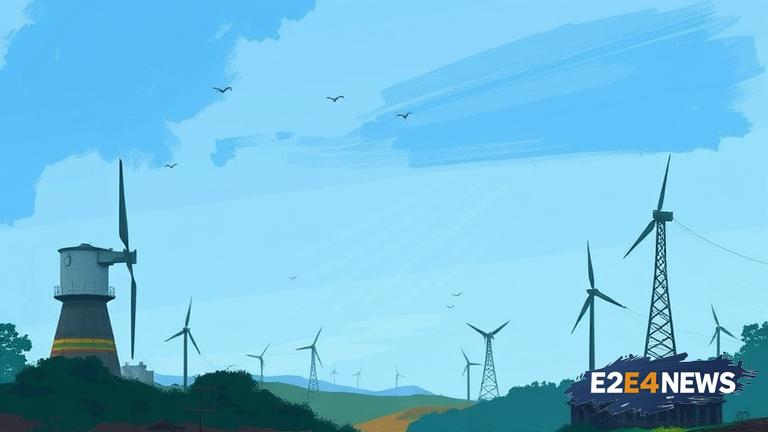India’s energy landscape is undergoing a significant transformation, driven by the government’s ambitious targets to reduce greenhouse gas emissions and promote sustainable development. The country has set a target of achieving 40% of its installed power generation capacity from non-fossil fuels by 2030. To achieve this goal, India is shifting gears in its energy transition, with a focus on renewable energy sources such as solar and wind power. The government has implemented various policies and initiatives to promote the adoption of renewable energy, including the National Solar Mission and the Wind-Solar Hybrid Policy. These initiatives have led to a significant increase in renewable energy capacity, with solar power capacity growing from 20 MW in 2011 to over 30 GW in 2022. The cost of renewable energy has also decreased dramatically, making it more competitive with fossil fuels. India is also promoting the use of electric vehicles, with the government setting a target of having 30% of new vehicle sales as electric by 2030. The country is also investing in energy storage technologies, such as batteries, to address the intermittency of renewable energy sources. The energy transition in India is also being driven by technological advancements, such as the development of smart grids and energy-efficient appliances. The government is also promoting the use of biofuels, such as ethanol and biodiesel, to reduce dependence on fossil fuels. India’s energy transition is expected to have a significant impact on the environment, with a reduction in greenhouse gas emissions and air pollution. The transition is also expected to create new job opportunities in the renewable energy sector and stimulate economic growth. However, the transition also poses challenges, such as the need for significant investment in infrastructure and the potential for job losses in the fossil fuel sector. Despite these challenges, India is committed to its energy transition goals and is working to address the challenges through various initiatives, such as the formation of a national energy storage mission. The country is also collaborating with international partners to promote the adoption of renewable energy and energy-efficient technologies. The energy transition in India is a complex and ongoing process, but the country is making significant progress towards achieving its goals. The government’s policies and initiatives have created a favorable environment for the growth of the renewable energy sector, and the country is expected to continue to play a leading role in the global energy transition. India’s energy transition is not only important for the country’s own development, but also for the global effort to address climate change. The country’s experience and expertise in promoting renewable energy and energy-efficient technologies can be shared with other countries, promoting a global transition to a low-carbon economy. In conclusion, India’s energy transition is a significant and ongoing process, driven by government initiatives and technological advancements. The country is making significant progress towards achieving its goals, and its experience and expertise can be shared with other countries to promote a global energy transition.
